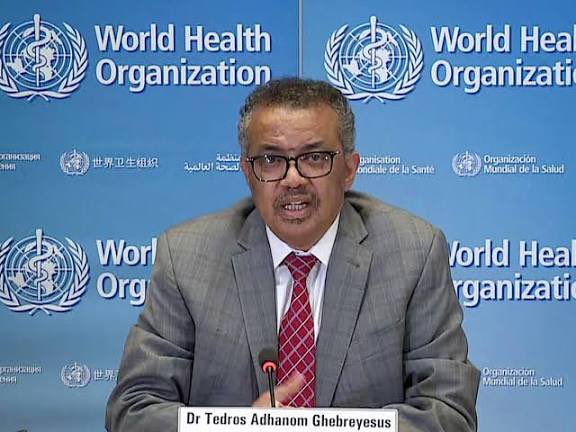
 WHO Director General Dr Tedros Adhanom Ghebreyesus.
WHO Director General Dr Tedros Adhanom Ghebreyesus.
Violence against women remains one of the world’s most persistent and under-addressed human rights crises, with almost no progress made in two decades, a landmark report by the World Health Organization (WHO) and UN partners shows.
According to the findings, nearly one in three women — about 840 million globally — have experienced intimate partner or sexual violence in their lifetime, a figure virtually unchanged since 2000.
In the last 12 months alone, 316 million women aged 15 and above — 11 per cent worldwide — suffered physical or sexual violence from an intimate partner.
The annual decline in such violence has averaged just 0.2 per cent over the past 20 years.
For the first time, the report — Global, regional and national prevalence estimates for intimate partner violence against women and non-partner sexual violence against women, 2023 — includes country and regional estimates of non-partner sexual violence.
It shows that 263 million women have been assaulted by someone other than a partner since age 15, though the true number is believed to be far higher due to stigma, fear and under-reporting.
“Violence against women is one of humanity’s oldest and most pervasive injustices, yet still one of the least acted upon,” said WHO Director General Dr Tedros Adhanom Ghebreyesus.
“No society can call itself fair, safe or healthy while half its population lives in fear. Behind every statistic is a woman or girl whose life has been forever altered.”
Funding Declines as Risks Rise
Released ahead of the International Day for the Elimination of Violence against Women on 25 November, the report draws on data from 168 countries between 2000 and 2023.
It outlines a crisis deepened by shrinking resources, as humanitarian emergencies, technological changes and widening inequalities increase risks for millions.
Only 0.2 per cent of global development aid in 2022 went to programmes preventing violence against women, and funding has dropped even further in 2025 — despite evidence that prevention initiatives work.
Lifelong, Widespread Harm
The consequences for survivors are severe, ranging from unintended pregnancies and sexually transmitted infections to depression and long-term trauma.
Sexual and reproductive health services remain crucial entry points for women seeking high-quality care.
Violence often starts young: in the past year, 12.5 million girls aged 15–19 — 16 per cent of that age group — experienced physical or sexual violence from an intimate partner.
Though present in every country, violence is most widespread in least-developed, conflict-affected and climate-vulnerable regions.
Oceania (excluding Australia and New Zealand) recorded a staggering 38 per cent prevalence of intimate partner violence in the past year — more than triple the global average.
Calls for Action and Accountability
The study notes that although more countries are gathering data to support policy-making, significant gaps persist, particularly on non-partner sexual violence and among marginalised groups such as indigenous women, migrants, women with disabilities and those in humanitarian settings.
It highlights that some nations are taking steps forward. Cambodia is revising domestic violence laws, enhancing services, upgrading shelters and scaling up digital prevention programmes for adolescents.
Ecuador, Liberia, Trinidad and Tobago and Uganda have developed costed national action plans with growing domestic support, even as international financing declines.
The report urges governments to accelerate action and invest in proven strategies, including:
• scaling up evidence-based prevention programmes
• strengthening survivor-centred health, legal and social services
• improving data systems to reach the most at-risk groups
• enforcing laws and policies that empower women and girls
It concludes that meaningful progress is possible — but only with sustained political commitment, adequate funding and accountability at every level.






![[PHOTOS] Three dead, 15 injured in Mombasa Rd crash](/_next/image?url=https%3A%2F%2Fcdn.radioafrica.digital%2Fimage%2F2025%2F11%2Fa5ff4cf9-c4a2-4fd2-b64c-6cabbbf63010.jpeg&w=3840&q=100)










